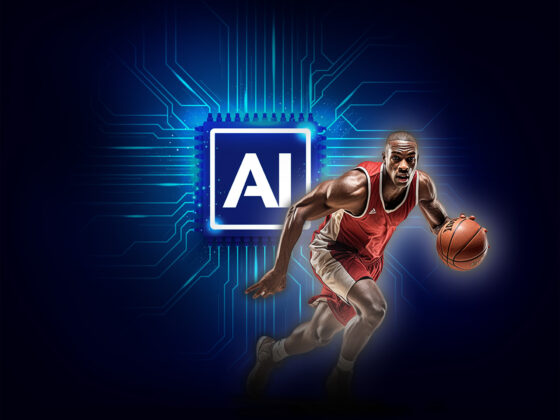The Future of Work in the Metaverse: A New Frontier
As we stand on the brink of a new technological era, the concept of the metaverse is rapidly evolving from science fiction into reality. This immersive, interconnected virtual world promises to revolutionize not just how we play and socialize, but also how we work. The fusion of virtual reality (VR) with our professional lives is set to transform employment, work environments, and team collaboration in ways we’re only beginning to imagine.
The Virtual Office: Redefining Workspace
Gone are the days when “going to work” meant commuting to a physical office. In the metaverse, employees will don their VR headsets to enter fully realized virtual offices. These spaces can be designed to foster productivity and creativity in ways that physical offices never could. Imagine walking into a virtual workspace that adapts to your needs – expanding for collaborative projects or shrinking for focused individual work. The environment could change its ambiance based on the task at hand, perhaps simulating a serene forest for brainstorming sessions or a bustling café for social interactions.
The flexibility of virtual offices also means that companies can scale their workspace instantly, without the constraints of physical real estate. As teams grow or shrink, the virtual office can adapt accordingly, creating a dynamic and responsive work environment that traditional offices could never match.
Global Talent Pool: Breaking Geographical Barriers
The metaverse has the potential to truly globalize the workforce in a way that current remote work setups only hint at. With virtual reality, the concept of “remote” work becomes obsolete – everyone is present in the same virtual space, regardless of their physical location. This paradigm shift will allow companies to tap into a truly global talent pool, hiring the best candidates from anywhere in the world without concerns about relocation or time zone differences.
For employees, this means unprecedented access to job opportunities. A software developer in rural India could work alongside a designer in New York and a project manager in London, all sharing the same virtual space. The metaverse could be the great equalizer in the job market, breaking down geographical barriers and creating a more diverse and inclusive workforce.
Immersive Collaboration: Enhancing Team Dynamics
Team collaboration in the metaverse goes far beyond video calls and shared documents. Virtual reality allows for truly immersive collaboration experiences that can rival, and in some ways surpass, in-person interactions. Imagine a product design team manipulating a 3D model in real-time, walking around it, making changes on the fly, all while discussing the design as if they were in the same room.
For fields like architecture, engineering, and scientific research, the ability to work with 3D models and simulations in a shared virtual space could lead to breakthroughs and innovations that were previously unattainable. The metaverse could also enhance soft skills and interpersonal interactions. Virtual reality’s ability to convey body language and spatial presence could make remote teamwork feel more natural and effective, fostering better communication and team cohesion.
Training and Skill Development: Learning by Doing
The metaverse presents unprecedented opportunities for training and skill development. Virtual reality can create safe, realistic environments for hands-on learning across a wide range of industries. Surgeons could practice complex procedures, pilots could simulate emergency scenarios, and factory workers could learn to operate machinery – all in a risk-free virtual environment.
Moreover, the immersive nature of VR learning can lead to better retention and understanding. Instead of watching a video or reading a manual, employees can physically (albeit virtually) perform tasks, making the learning process more engaging and effective. This could revolutionize onboarding processes and continuous professional development, allowing employees to constantly upskill in an interactive and engaging manner.
The Gig Economy 2.0: Flexible Work in Virtual Spaces
The metaverse could usher in a new era for the gig economy. Freelancers and independent contractors could set up shop in virtual co-working spaces, networking with potential clients and collaborators from around the world. These spaces could host virtual job fairs, networking events, and collaborative projects, creating a vibrant ecosystem for gig workers.
Furthermore, the metaverse could give rise to entirely new categories of jobs. Virtual reality architects, digital fashion designers for avatars, and metaverse event planners could become sought-after professions. The gig economy in the metaverse could offer unprecedented flexibility, allowing workers to seamlessly switch between projects and clients in different virtual environments.
Challenges and Considerations: Navigating the Virtual Workplace
While the potential of work in the metaverse is exciting, it’s not without challenges. Issues of data privacy and security will need to be addressed as sensitive business information is exchanged in virtual environments. The digital divide could widen as access to high-quality VR equipment becomes a prerequisite for certain jobs. There’s also the question of work-life balance – when your office is a virtual space you can access at any time, how do you “leave work at work”?
Moreover, companies and policymakers will need to grapple with new questions about labor laws, taxation, and regulations in a borderless virtual work environment. As with any significant technological shift, the move towards work in the metaverse will require careful consideration and proactive problem-solving.
As we look towards the future, it’s clear that the metaverse has the potential to fundamentally reshape the world of work. From virtual offices that transcend physical limitations to global collaboration that feels local, from immersive learning experiences to new frontiers in the gig economy, the possibilities are as vast as the virtual worlds we can create. While challenges remain, the future of work in the metaverse promises to be more flexible, inclusive, and innovative than ever before. As we stand on the cusp of this new era, one thing is certain: the way we work will never be the same again.




